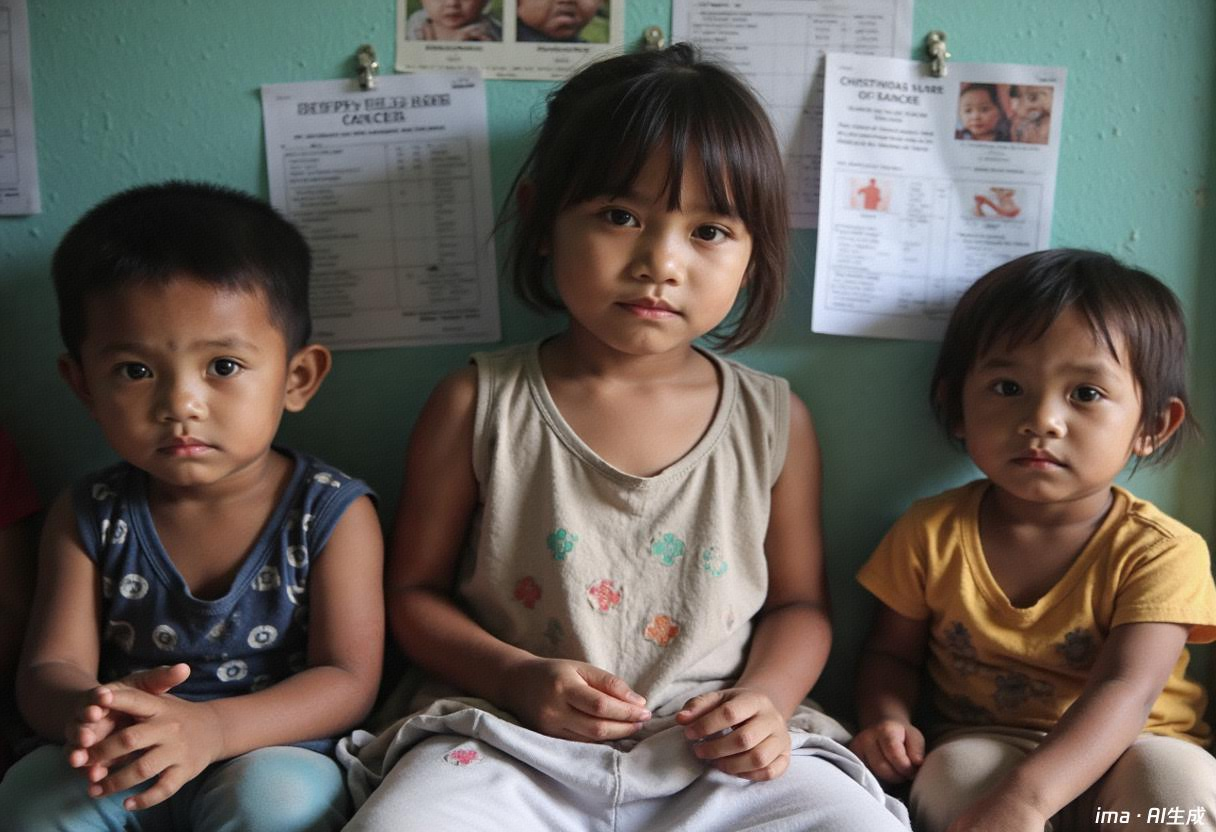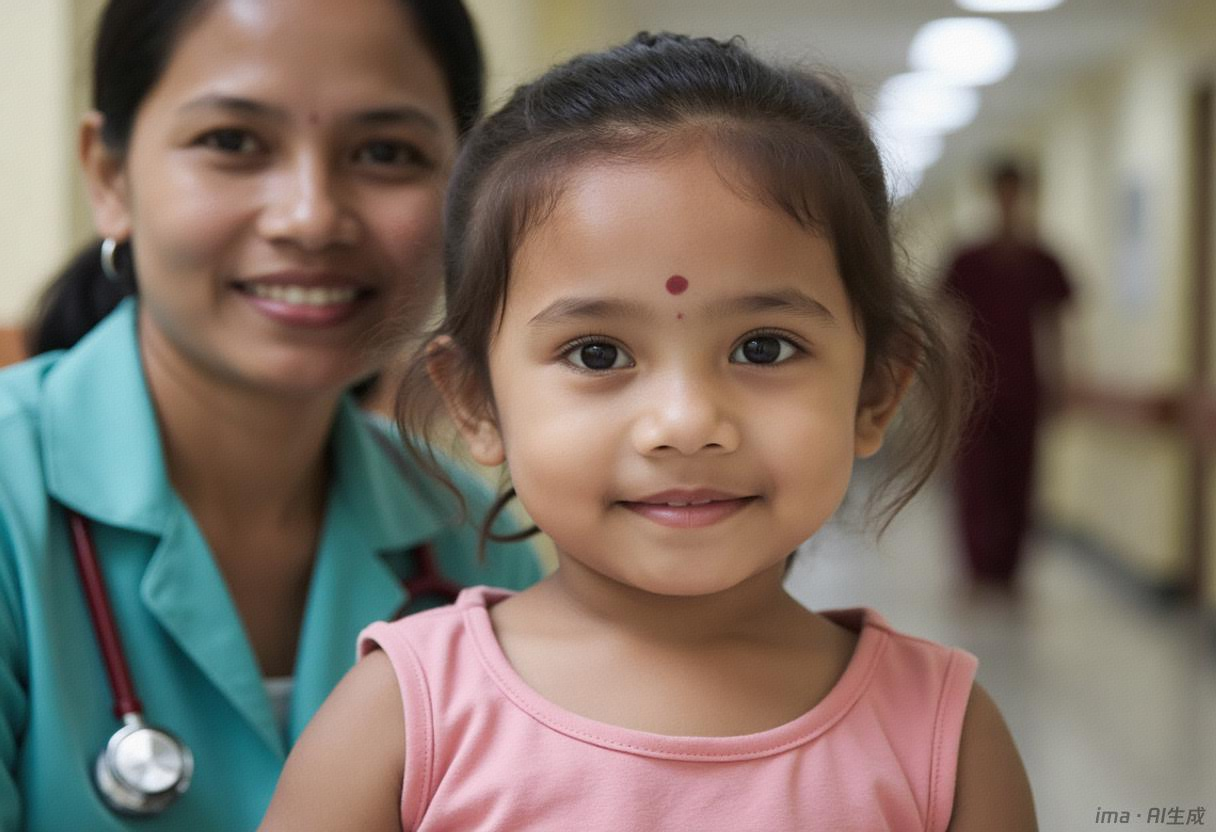When Should White Blood Cell Boosters Be Administered During Medulloblastoma Chemotherapy? Can Traditional Chinese Medicine Help with Poor Blood Counts?
When Should White Blood Cell Boosters Be Administered During Medulloblastoma Chemotherapy? Can Traditional Chinese Medicine Help with Poor Blood Counts?
Source: Sunflower Children's Hospital
Author: Sunflower Children's Hospital
Editor: Gao ZX
Date: December 7, 2023
The "100 Questions and Answers about Medulloblastoma" column invites experts in the field of pediatric brain tumors to answer various questions about medulloblastoma. Today, we present the 12th edition, featuring experts Wang Juan, Xu Boping, and Cai Ruiqing! We also welcome your questions in the comments section.
1. What should I do if I experience abdominal pain during chemotherapy with Vincristine?
Vincristine is a commonly used first-line chemotherapy drug for treating malignant tumors in children, but it can cause peripheral nerve paralysis. If it affects the autonomic nerves that regulate the intestines, it may lead to bowel motility disorders, presenting symptoms like abdominal pain, constipation, bowel obstruction, or paralytic ileus. If constipation is accompanied by mild abdominal pain, abdominal massage, oral lactulose, or the use of a glycerin suppository can help; if constipation and abdominal pain persist, seek medical attention promptly. Saline enemas and injectable B vitamins may be tried, and fasting may be advised. Subsequent chemotherapy may be switched to Vinorelbine.
2. Is a blood test required before chemotherapy?
A complete blood count is a basic requirement before chemotherapy. In addition to a complete blood count, liver and kidney function tests, as well as an electrocardiogram, are necessary. Depending on the individual patient's circumstances, tests for urine analysis and thyroid function may also be required.
3. Why are blood counts not allowed to be too low before chemotherapy or radiotherapy?
Chemotherapy and radiotherapy are essential methods for treating medulloblastoma. Medulloblastoma chemotherapy is intense, and the range and dosage of radiotherapy are significant. Both chemotherapy and radiotherapy can lead to or exacerbate bone marrow suppression, increasing the risk of infection or bleeding. Therefore, blood count indicators for children with medulloblastoma must not be too low prior to treatment. If blood counts are too low before chemotherapy or radiotherapy, such as when white blood cells are below 1.0×10^9/L or neutrophils are below 0.5×10^9/L, indicating grade IV leukopenia and granulocytopenia, there is a high risk of febrile neutropenia. Continuing chemotherapy or radiotherapy under such low blood count conditions may result in prolonged declines in white blood cell counts, leading to increased risks of bacterial, viral, or fungal infections, which could cause septic shock, sepsis, pneumonia, or in severe cases, death. Therefore, if the blood counts are too low before treatment, it is advisable to consult the attending physician; postponing chemotherapy or radiotherapy and providing treatment to boost blood counts and symptom management until they improve is recommended.
4. When should white blood cell boosters be administered?
Antitumor treatments, such as chemotherapy, can lead to bone marrow suppression. The timing for administering white blood cell boosters varies for each individual due to differences in chemotherapy dosage intensity and individual tolerance. Generally, for chemotherapy regimens with mild bone marrow suppression, close monitoring of blood counts is required after chemotherapy. If white blood cell counts fall below 3×10^9/L, short-acting white blood cell boosters may be administered. For chemotherapy regimens with severe bone marrow suppression, which may lead to grade IV suppression with prolonged duration and a higher risk of febrile neutropenia, long-acting white blood cell boosters for prevention or short-acting boosters may be given immediately after chemotherapy, before white blood cell counts start to decline.
Post-antitumor treatment white blood cell boosting can be categorized into preventive and therapeutic treatments. For preventive treatment, short-acting white blood cell boosters are generally administered the day after chemotherapy or within a maximum of 3 to 4 days, at a dosage of 5μg/kg, via subcutaneous or intravenous injection, once daily, continuing until absolute neutrophil count (ANC) recovers to above 2.0×10^9/L. Long-acting boosters are given once 24 hours after the end of each chemotherapy cycle, with at least 12 days before the next chemotherapy, administered subcutaneously at a dosage of 100μg/kg for pediatric patients. For therapeutic use, short-acting white blood cell boosters are administered at 5μg/kg, via subcutaneous injection, once daily, continuing until ANC recovers to above 2.0×10^9/L.
5. How long can the effects of white blood cell boosters last?
There is no definitive answer to how long the effects of white blood cell boosters last after chemotherapy, as it varies among patients, chemotherapy regimens, types of boosters, and administration methods, all of which affect the recovery of white blood cells. Generally, the purpose of white blood cell boosters is to stimulate the bone marrow hematopoietic cells to accelerate the production of neutrophils, thereby shortening the duration of low white blood cell counts after chemotherapy, reducing the severity of bone marrow suppression, and lowering the risk of infections.
Based on the duration of effects, white blood cell boosters can be divided into short-acting and long-acting types. Short-acting boosters require daily injections, typically used during the critical period of 7 to 14 days after chemotherapy, until white blood cell counts return to normal or near normal. Long-acting boosters require only a single injection and can be administered on the second or third day after chemotherapy, maintaining efficacy for up to two weeks. Therefore, the duration of effects will differ among various types of white blood cell boosters.
6. Can Traditional Chinese Medicine help with poor blood counts?
Poor blood counts can generally be classified into pathological and treatment-related categories. Both types can be treated with Traditional Chinese Medicine.
Pathological poor blood counts
Conditions such as leukemia, which causes excessive proliferation of white blood cells, thalassemia, thrombocytosis, and polycythemia, can be treated with herbal medicines that clear heat and detoxify to alleviate symptoms.
Treatment-related poor blood counts
Conditions like white blood cell, red blood cell, hemoglobin, and platelet reductions due to chemotherapy or radiotherapy, as well as anemia following gastric resection, can be treated with herbal medicines that tonify Qi and blood and strengthen the spleen and kidneys, which can promote the recovery of bone marrow hematopoietic function.
7. When will hair regrow after it has fallen out?
Chemotherapy can cause certain damage to the body, potentially leading to hair loss. Generally, hair lost due to chemotherapy begins to regrow approximately 1 to 3 months after treatment. If the child's health status is good, hair regrowth may occur more quickly, typically within 1 to 2 months. Conversely, if the child's health is poor, regrowth may be slower, often taking 2 to 3 months. After chemotherapy, it is important for the child to rest, maintain a cheerful mood, consume a balanced diet rich in fresh fruits and vegetables, and engage in moderate exercise to support recovery and hair growth. The new hair that grows back will often be healthier and more beautiful than before chemotherapy.
Editorial Experts | Sun Yat-sen University Cancer Prevention and Treatment Center, Pediatric Oncology
Wang Juan, Attending Physician (Questions 1-5)
Sun Yat-sen University Cancer Prevention and Treatment Center, Department of Integrated Traditional Chinese Medicine
Xu Boping, Professor, Chief Physician (Question 6)
Sun Yat-sen University Cancer Prevention and Treatment Center, Pediatric Oncology
Cai Ruiqing, Deputy Chief Nurse (Question 7)
Formatting | Ying Tao
Proofreading | He Fei
Search
Related Articles

Relaxation Therapy & Peace Care
Jul 03, 2025

Rare Childhood Tumour
Jul 03, 2025

Inflammatory Myofibroblastoma
Jul 03, 2025

Langerhans Cell Histiocytosis
Jul 03, 2025

Angeioma
Jul 03, 2025